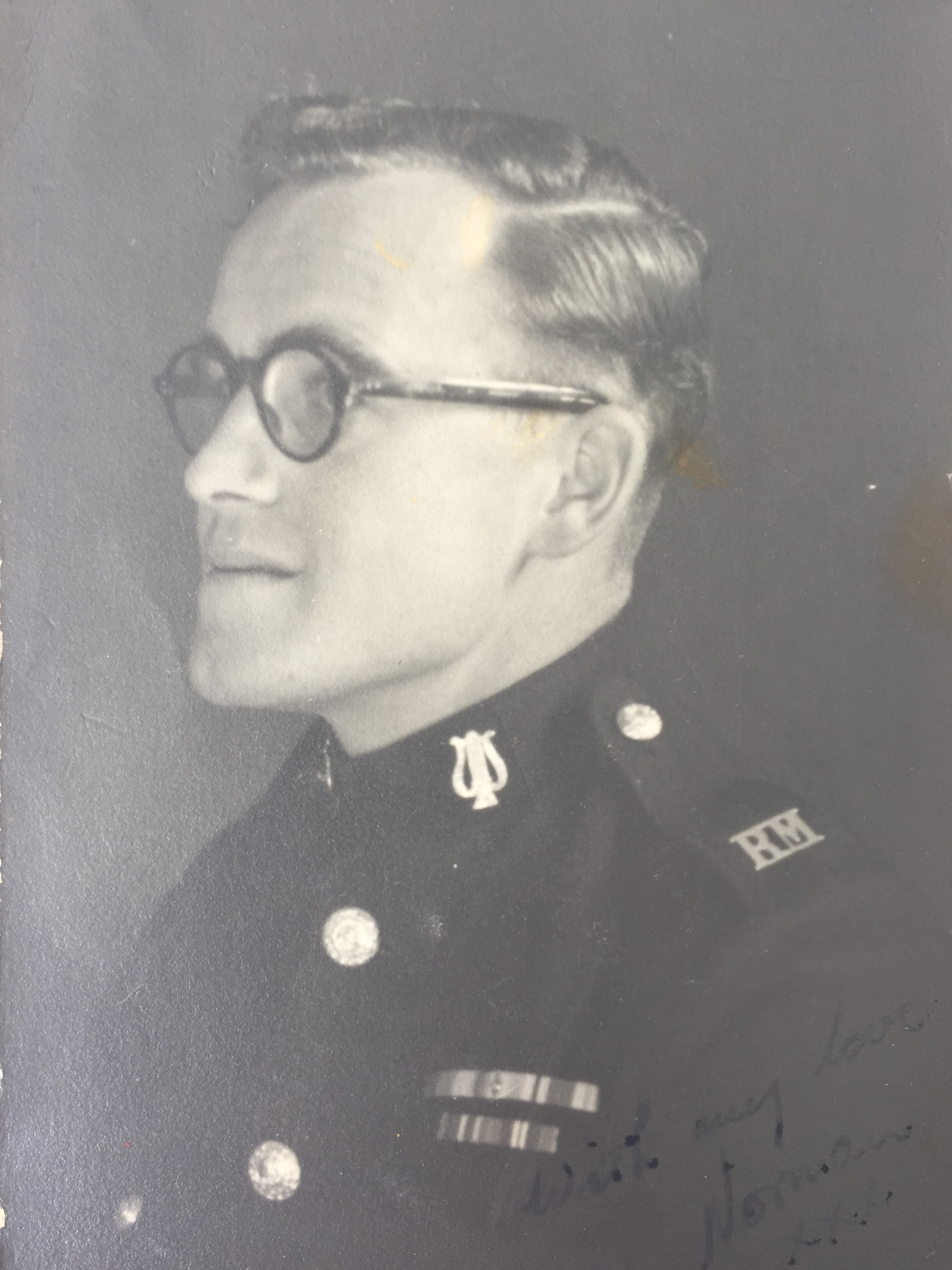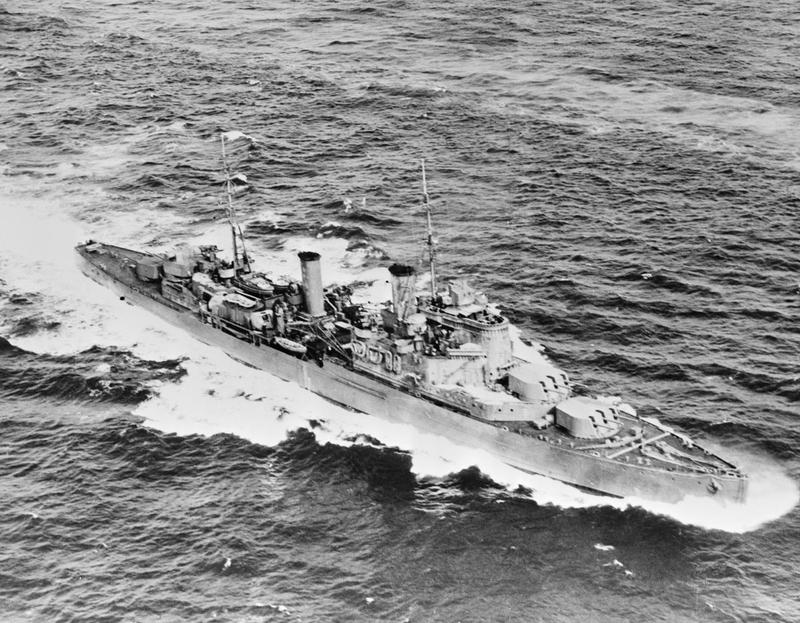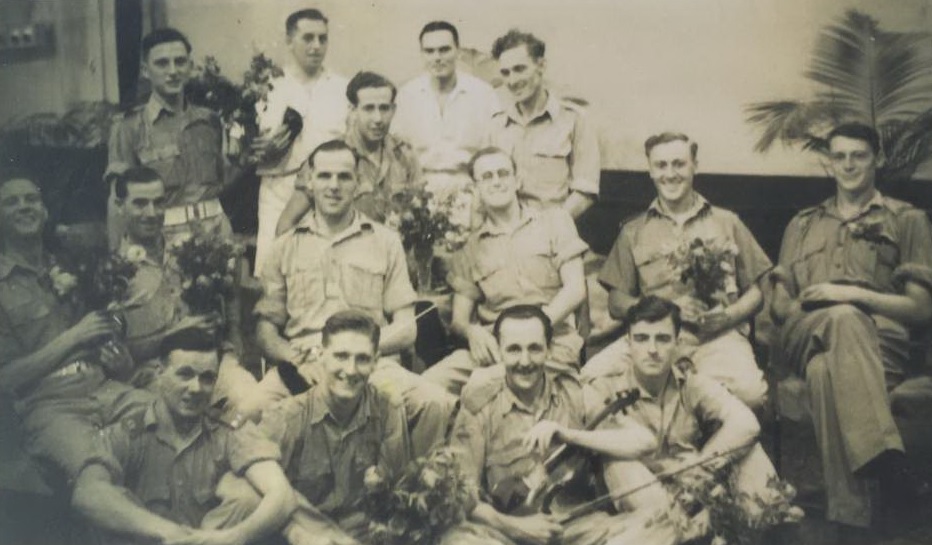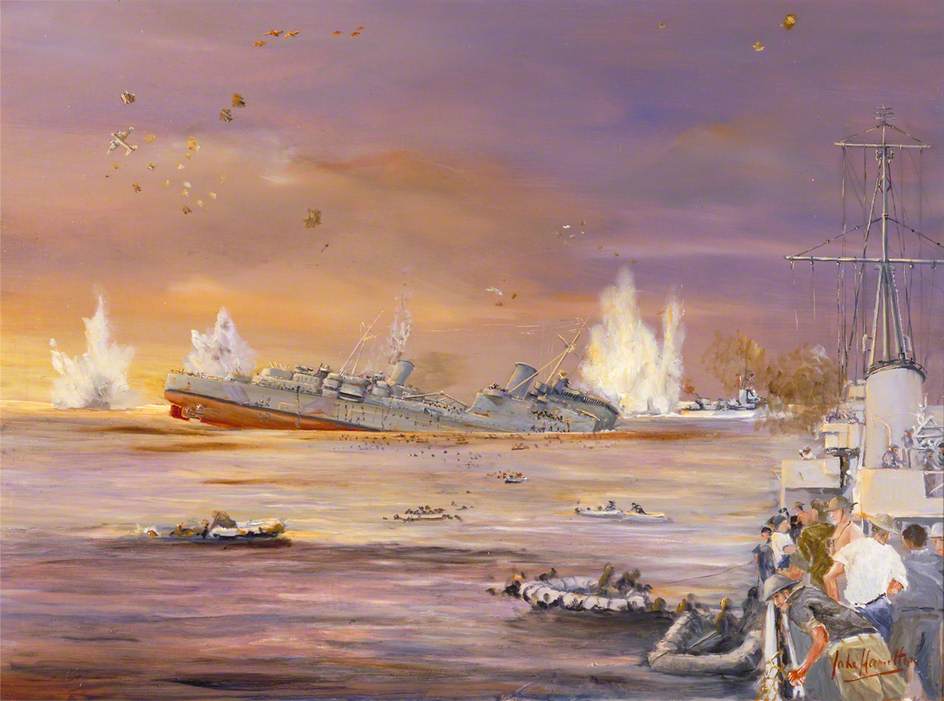Between 20 May-1 June 1941 a huge German airborne assault took the Greek island and forced the Allies to evacuate to Egypt. There were 35,000-40,000 British, Dominion and Greek troops on Crete that significantly outnumbered the 17,500 German forces that attacked the island. Nevertheless, despite fierce resistance, the Germans eventually gained air superiority and the Allies began to evacuate the island at a cost of 4,000 dead and 11,000 captured.
The Luftwaffe inflicted devastating attacks on Royal Navy ships off Crete and sunk three cruisers and seven destroyers including the light cruiser HMS Fiji.
Fiji was sunk early in the battle on 22 May 1941 while trying to assist another stricken ship with the loss of 241 of her men. 523 crew members survived the sinking and in 2017 the last living survivor is Norman Lewis.
Born in 1922, Lewis was a bandsman in the Royal Naval School of Music who was trained to provide entertainment aboard naval ships and to assist the day-to-day operations aboard HMS Fiji including manning transmitting stations and acting as a stretcher-bearer onshore. Before the sinking he had already survived a torpedo attack on the Fiji in 1940.
Lewis’s service during the war was lengthy and dramatic and after the Battle of Crete he later served on Arctic Convoys, liberated Allied POW camps in the Far East and witnessed the devastating aftermath of the atomic bombing of Hiroshima in 1945. Nevertheless, despite his subsequent experiences the sinking of HMS Fiji remains vivid and Lewis spoke to History of War Issue 45 about his harrowing survival. He has also recently written a poem called “Amazing Grace” about the sinking which will be published as part of a Forward Poetry competition.

What happened when you were torpedoed aboard HMS Fiji in 1940?
In late August 1940 Fiji went on her first convoy to the French colony of Dakar in West Africa. The French had capitulated so a force was sent to Dakar because there were several French naval ships that the British did not want to fall into the hands of the Germans.
We were with the convoy about 19 miles west of Rockall and there were rows of us all along the upper deck. There was a roll-call everyday around 4-5pm to make sure that everybody was still onboard. At about five minutes to the hour we were waiting to be called to line up when there was this massive explosion. We’d picked up a torpedo and luckily we were able to get back to the Clyde and she was repaired. We were then asked to go back to the ship again because of all the training we had had and we knew what was what and what we could do onboard. So we went back again and then on to Crete.
What were your experiences during the sinking of HMS Fiji on 22 May 1941?
We were down in the transmitting station, which was about four decks below on the Fiji. It was quite a day that day. We were accompanying HMS Gloucester on on a mission to help another ship, HMS Greyhound, that had been in trouble. When we got to her Greyhound was sinking so there was nothing we could do. We turned back and on the return journey to join the fleet off the southwest coast of Greece the German forces concentrated on Gloucester first and she went down around 5pm.
The Fiji managed to make away from the area and got as far as the safest corner of Crete but then a German bomber came over. We had to wear lifebelts at action stations, everybody did. It was like a car tyre that you inflated and they all had to be worn. We wouldn’t have survived without them.

One of the bombs she dropped went down the side of the ship and blew the ship’s side in. We went over the side around 8.10pm. My main mate Doug and I clung together and in the darkness swimming around. Doug had a watch so we knew how long we’d been in the water and we’d been in the water about four hours. It was dark, we were on our own and it was jolly cold. Doug said, “Norm, God help us” and I said, “There’s lots of people finding us, you’ve got to believe” but soon after he said that we saw a pinprick of light in the distance and we knew it was a rescue destroyer.
We made our way to that light, it took us about an hour, and we came up against the side of the destroyer. We couldn’t climb up the rope ladder because when they’re wet they’re jolly slippery. We couldn’t hoist ourselves on the rope so a chap came down from the upper deck down to a raft that was alongside. He put a noose underneath our shoulders and we were hoisted up one by one.
Luckily we managed to survive-it was some experience for young chaps. That time in the water, in the dark and just the two of us together: it was horrifying, it really was. Had we not seen that pinprick of light we would never have survived throughout the night that’s for sure. Somebody was there to help us, I don’t know who, but somebody was.

AMAZING GRACE
By Norman Lewis
One brief moment, that moment
in time and three short words,
“God Help Us!” not intended to
rhyme. It was then we saw in the
distance a pinprick of light
piercing the gloom and the
darkness of night.
Our hearts were uplifted, our
spirit so low as we knew to
swim to that light was so far
to go. We were so cold, so
tired, so worn, it would be
difficult to move but the light
would not come to us, we
could not pick or choose, no
time to yawn and certainly
would not survive until the
light of the new dawn.
We knew being so cold would
induce deep, deep sleep, so
we had to speak, just keep
talking about anything, stay
awake or we would drift away
in the ocean, so deep.
So, it was swim to the light and
if we kept going we would
probably survive, and that
thought kept us moving, we
would still be alive. Our limbs
were so numb, they were so
cold, but we had to keep
moving and that light was the
target, we had to be bold.
To move was a nightmare, it
was so difficult to swim and we
wondered how long that light
would remain there, and would
the captain of that ship say,
“There is nobody else out there.
Let’s pack it in!!?”
Miraculously, we made the
ship’s side, we both were all in,
could not have lasted much
longer, we had no more swim.
A life raft was alongside, we
had to climb in but had to lift
ourselves aboard if we
wanted to get in. This was
impossible, what could we do
when a voice from the ship’s
deck, shouted, “I’m coming
down to help you!!”
A body appeared down the
Jacob’s ladder and into the
raft, cracking a joke as he
did so which made us both
laugh.
He first pulled young Doug in,
then it was me, saying,” Can
you climb the ladder, let’s try,
let’s see?” Neither Doug nor I
could make it, no strength left
at all so the lasso was used but
make sure you don’t fall. The
noose goes over head, around
the shoulders, under the arms
and the hands have to grip
tight or one would be back in
the sea to spend a cold night.
I so remember my feet
touching that warm, iron deck
and that feeling of thankfulness
to Him, one should never forget.
It was difficult to walk, we both
were helped down below and
given a tot of neat rum which
we had to drink in one go, and
one could feel it warming the
body from the head to the toes.
This experience was over except
in the mind and I never wanted
another, not of this kind. There
were others, of course, as the
war went on for years. Yes!!
there was laughter, there were
tears and I, too, had my fair
share of worry and fears but
like most, out there, battling,
I kept a brave face, survived
to the end. Many say I was
lucky, but I say, by
“HIS AMAZING GRACE!”
The Royal British Legion is the United Kingdom’s largest armed forces charity, visit www.britishlegion.org.uk to learn more.
